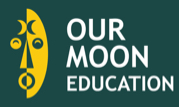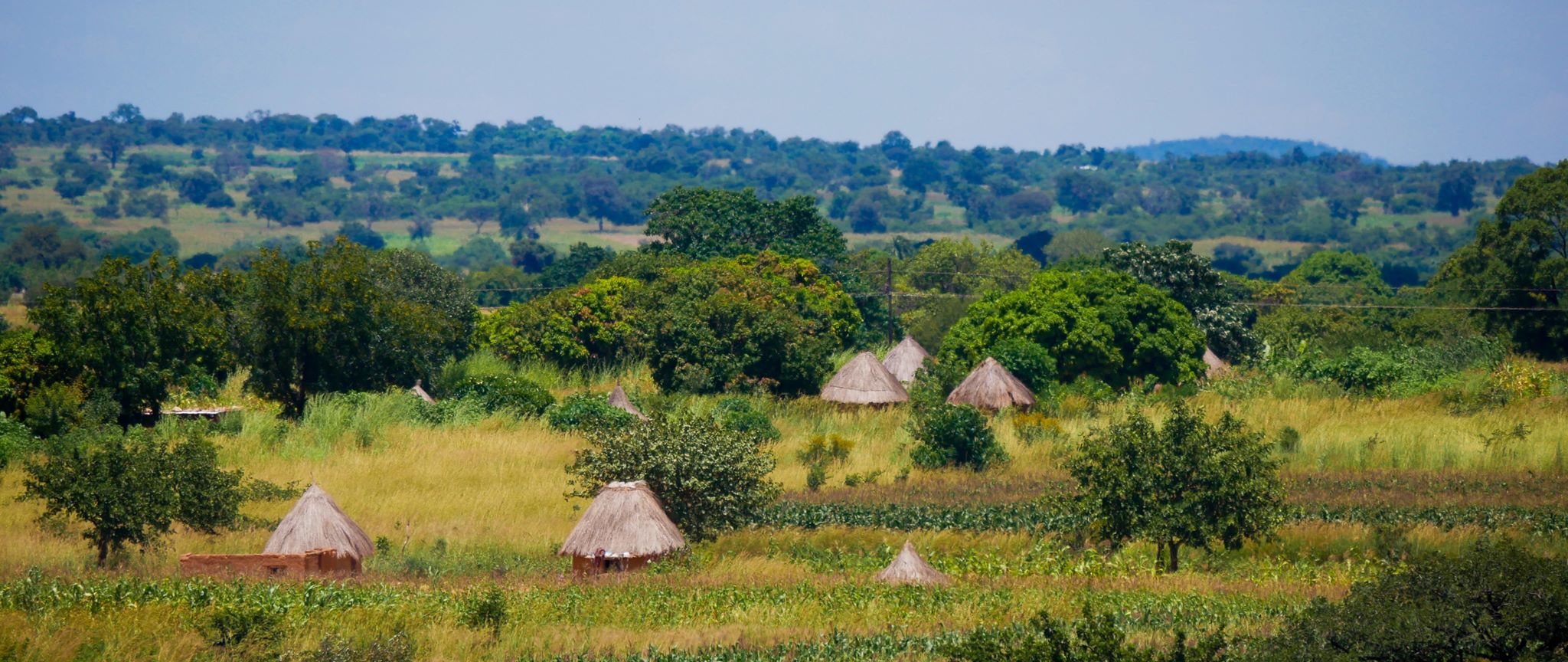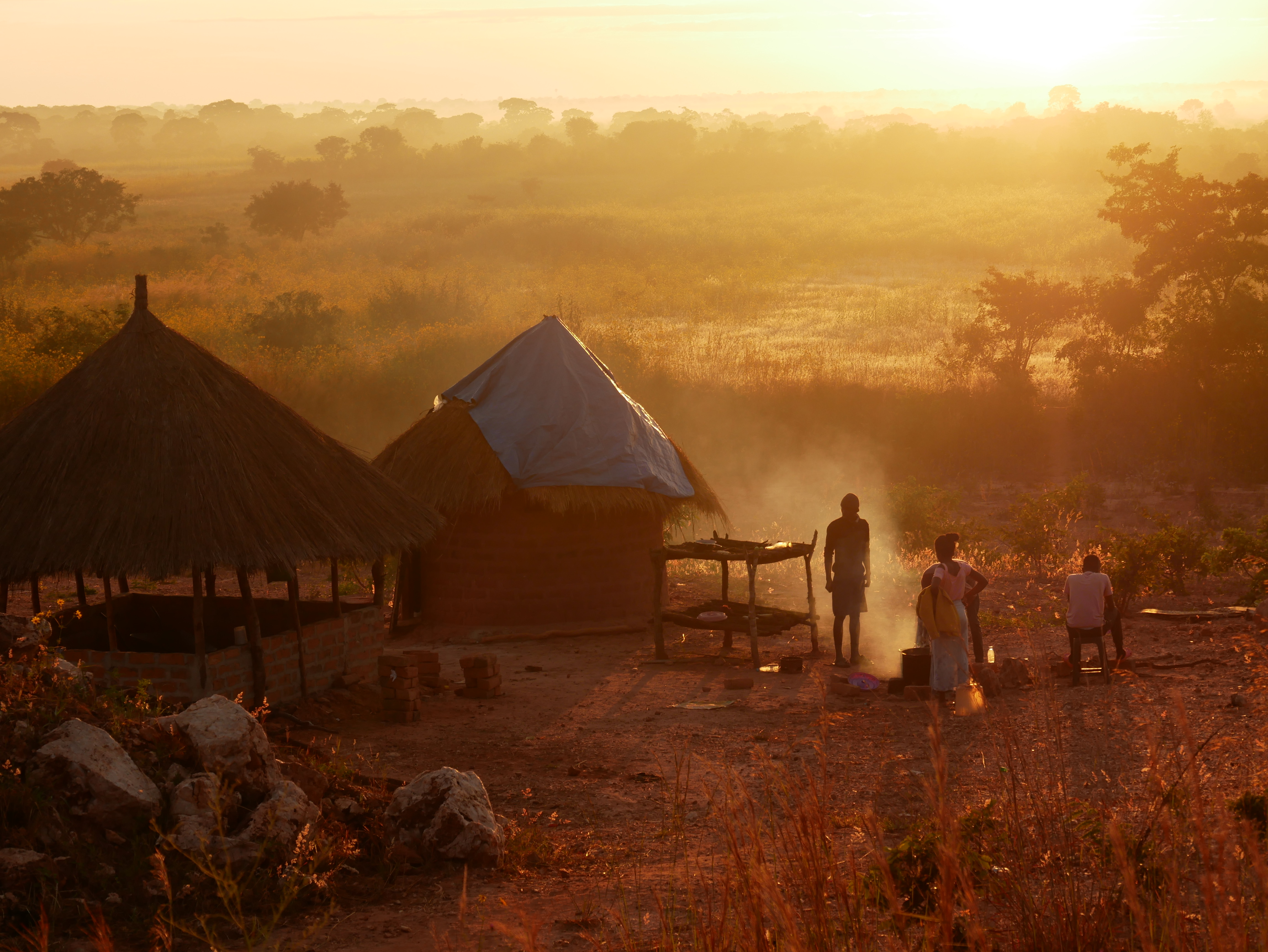As the cock crows and another day dawns, I luxuriate in the knowledge that I have another 15 minutes before I need to get up. My thin mattress laid out on the concrete floor is every bit as sleep enhancing as its thick, padded and well-sprung equivalent back home. Some of the girls I am sharing my room are already up and returning with buckets balanced majestically on their heads. They are carrying freshly drawn water for bathing, from the borehole which is not-too-far-away but also not so near. They make a glorious site in their brightly patterned chitenges wrapped around their waists, highlighted by the early morning sunrise.
My typical day starts with a cool, invigorating bath behind a grass thatched screen. Some of the boys heat their water, but we females are made of stronger stuff! Breakfast consists of porridge made from mealie meal (ground maize), prepared with milk and groundnuts.
Before we can go to our classes, Justin enlightens us with morning devotion. The students are attentive and questioning, hanging on his every word. It is a time for reflection and thanks; it is a time for warming the heart and bonding.
We set off along the way, my rucksack packed to overflowing with materials, my camera, tripod and laptop. Sometimes, one of the boys will offer to carry my bag as they see me struggle to get it onto my back. Our walk takes about 30 minutes, along a dusty, red-earth path and through fields, before finding the road that takes us to a classroom at a nearby orphanage. In return for tutoring the orphans, we are allowed to use the classroom for our students – this cooperation and collaboration is a theme I expand on for our students.
Not one to waste time, I use the walk to host a tutorial. Maybe we talk about life studying abroad – the challenges as well as the excitement and benefits. Two of our scholars will be off shortly to University of Edinburgh. They are already worried about being cold; they still can’t imagine that our homes and classrooms have heating systems! There are more important lessons for them to learn, however, about being resilient when things don’t go exactly to plan.
Today, I give them feedback from the recent conference I attended in Kenya: the HALI Indaba. The HALI Access Network is a group of organisations, that includes Our Moon. We have a common objective of helping high achieving low income (HALI) students to access university abroad. Our Moon was lucky to be invited to the inaugural Indaba (a general African expression for a meeting) two years ago, held in Zimbabwe. This year, we met on the shores of Lake Elementaita in Kenya. This year’s theme was ‘Impact’. My recent research from my Master’s was on point, so I ran through my main findings. We discussed about the return home and giving back, and how students can find this daunting. We concluded that our organisations need to help prepare these young people for their return and how this preparation needs to happen right from the start of their programmes with us and continue through their university experience.

We learnt of more scholarship opportunities, which goes to show that by collaborating, more opportunities are revealed, and everyone benefits. In all, twelve universities visited the Indaba to tell us about their programmes and their aims. Some I already knew about, but others were new to me. The other power of our network is in negotiation. The College Board, the organisation that administers SATs and the Common App system, has agreed to waive our students’ costs of applying to university and is also willing to provide vouchers for taking SATs. SATs are the standardised tests that American universities generally require as part of the admissions process. These are sizeable costs for our organisation and shows again the strength in collaboration.
Arriving at the orphanage, we conclude our chat and start the morning’s lessons. We are hosting six Grade 12 students from another Zambian HALI organisation. As part of the Our Moon scholarship, our scholars are expected to do some volunteering, so they had prepared revision classes for these students. For me, I see Our Moon’s scholars in a different light. They had prepared well for their lessons and were able to adapt to the needs of the Grade 12 students. The lessons are interactive and lively. It is clear that our scholars really know their stuff, can communicate articulately and enthuse their pupils in their chosen subjects.

While this is going on, I spend time individually with our scholars talking through challenges they face, issues they are concerned with and volunteering opportunities. We start exploring universities which they might like to research with the prospect of them applying. It is exciting to be considering their next steps. A breakthrough happened with one scholar. He had been resisting applying to America because of some preconceived ideas he had about the career he should follow. One of the major strengths of the American education system is that students can go to university ‘undecided’ about their major. And even if they are decided, they have the opportunity to change and to take other courses. For our scholars whose life experiences are likely to be quite narrow, this is a particularly attractive route for them to take. He is now contemplating applying to Yale and Brown, among other universities, to study a broad humanities degree.
Lunch is a simple affair – just bread, peanut butter, bananas and a fruit drink. I tell them that mashed banana on bread with peanut butter is extraordinarily tasty, but they are resolutely unconvinced! In the afternoon, I have sessions for the whole group on plagiarism and about applying to university. None knew about plagiarism and were shocked by the realisation that they could be thrown out of university for something that they do all the time – after all, the Zambian education system encourages rote learning.

I also show a Ted Talk. I love Ted Talks. Mostly, students have limited access to the internet and streaming talks can be difficult. It is a way of bringing in experts to our classroom or introducing them to more radical thinkers. In keeping with the theme of being ‘undecided’ and dismantling assumptions, the Ted Talk is by Emilie Wapnik about being a multi-potentialite – someone who has lots of interests, someone who is good at many things, but is not so keen on focussing on just one area. Usually, these people are creative, have boundless energy, but become bored if their routine becomes too predictable. In Zambia, where nearly every bright student is told from an early age that they will become a doctor or an engineer, then this talk was a great way of freeing them up from these preconceived ideas. The walk back was spent discussing the talk and thinking of how liberating it was for some of the students to know that, even if they eventually want to focus, that is it okay to try many different things before settling into a career.

My walk tutorial focuses on the importance of considering how they use their education to inform them about how they can solve problems they see around them in Zambia. Our temporary home, in a rural Zambian community, brings home to many of the students for the first time, the need for development while keeping the best parts of society. Too many people are idle which leads to anti-social behaviour. Too much ground is left to waste whereas with good agricultural education and policies, much more could be made of the land and people would, at the very least, be less hungry. The limited water available for drinking troubles some of the students and makes them consider solutions to their country’s water problems. And the lack of electricity in all but a few buildings in the whole village leads them to discuss how the country needs an electrification strategy and an alternative to hydro power, solar being an obvious, but still under-utilised, solution.
In no time, we are back up the hill, with the smells of supper wafting in the air. Today we have local goat, with nshima, pumpkin tops and sweet potatoes. The women – our cooks -have been working hard. The students are all chattering, mingling with each other and still learning. Our scholars prepare for the following day and the Grade 12 students review their notes and write their reflections. All is quiet by 8:30pm, apart from the sound of me tapping away at my pc, preparing for tomorrow’s lessons.

Our days were similar in structure but varied and thought-provoking in content. Different topics were discussed in lessons, on the walks and back at base. The second week involved the same Grade 12 students, but new scholars teaching and testing them. One of the Grade 12 students secretly went off to work with the orphans each day during her lunch break, inspiring them also to think about how they can change the world.
My last two days were spent in Lusaka visiting University of UNZA, the Ministry of Community Development and spending time on Our Moon’s strategy with Justin. I could have done with more time – there was not enough time to meet everyone this time, but it leaves plenty to do on my next visit.

Much thanks goes to Justin for his careful planning of the two weeks, to his family members and members of the community who helped to prepare and improve our facilities, to other family members who cooked for us tirelessly with very basic equipment, and to the headmen of Kapopo, in Chibombo District, who support the work we do.

Other members of the community continue to help us, making bricks and helping with the building of more huts and facilities. In addition, I would like to thank all Our Moon’s volunteers and supporters, in particular, Marisa who put together some presentations for me and Florence Nkowane of Kucetekela Foundation for her wonderful Grade 12 students.


